The too-short life of Gabe Hudson, a writer with a ‘heart as big as his talent’
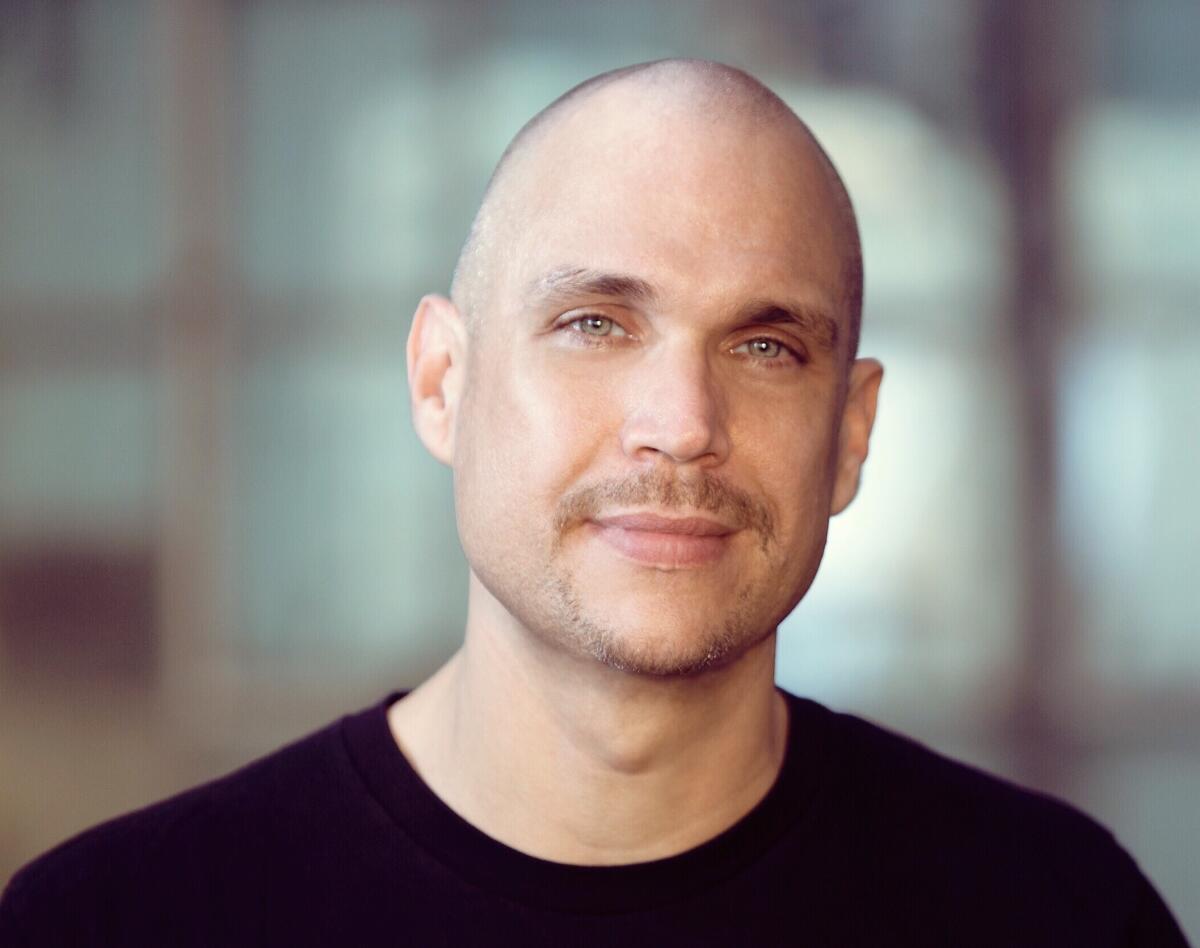
Remembering author Gabe Hudson, a “sad, funny cheerleader” of writers from South Korea to Southern California, plus the latest book news in our Book Club newsletter.
- Share via
Good morning, and welcome to the L.A. Times Book Club newsletter.
I’m Boris Kachka, the books editor at the Los Angeles Times, and even though Thanksgiving has come and gone, I’m still thinking about gratitude.
I’m grateful for Gabe Hudson. A former Marine reservist, he was the author of the 2002 collection “Dear Mr. President,” an octet of dark, hilariously surreal stories that might be the best fiction about the first Gulf War. Hudson died on Nov. 23 at age 52. His memorial service was livestreamed on Thursday. The cause of death is undetermined, according to his close friend, novelist Akhil Sharma.
You’re reading Book Club
An exclusive look at what we’re reading, book club events and our latest author interviews.
You may occasionally receive promotional content from the Los Angeles Times.
I knew Gabe — not through literary circles but because he was briefly my upstairs neighbor in Brooklyn. After we discovered mutual interests and friends, we went out for a drink. At 6’4”, shaved bald, favoring chunky headphones and a newsboy cap, he was quiet in person but highly opinionated. Emanating warmth, curiosity and concern, he was a good talker and a great listener. His agent, Susan Golomb, told me he was “a gentle giant” whose “heart was as big as his talent.”
Gabe graduated from the University of Texas at Austin and earned his MFA from Brown. “Dear Mr. President” led to profiles in major glossy magazines and a spot on Granta’s list of 20 Best Young American Novelists. But following it up proved challenging; after shelving an ambitious war novel, he fulfilled his two-book deal with Knopf by publishing a rollicking, Vonnegut-esque fantasy, “Gork, the Teenage Dragon.” He taught first at Princeton, then for five years in Seoul, South Korea, and eventually at Columbia.
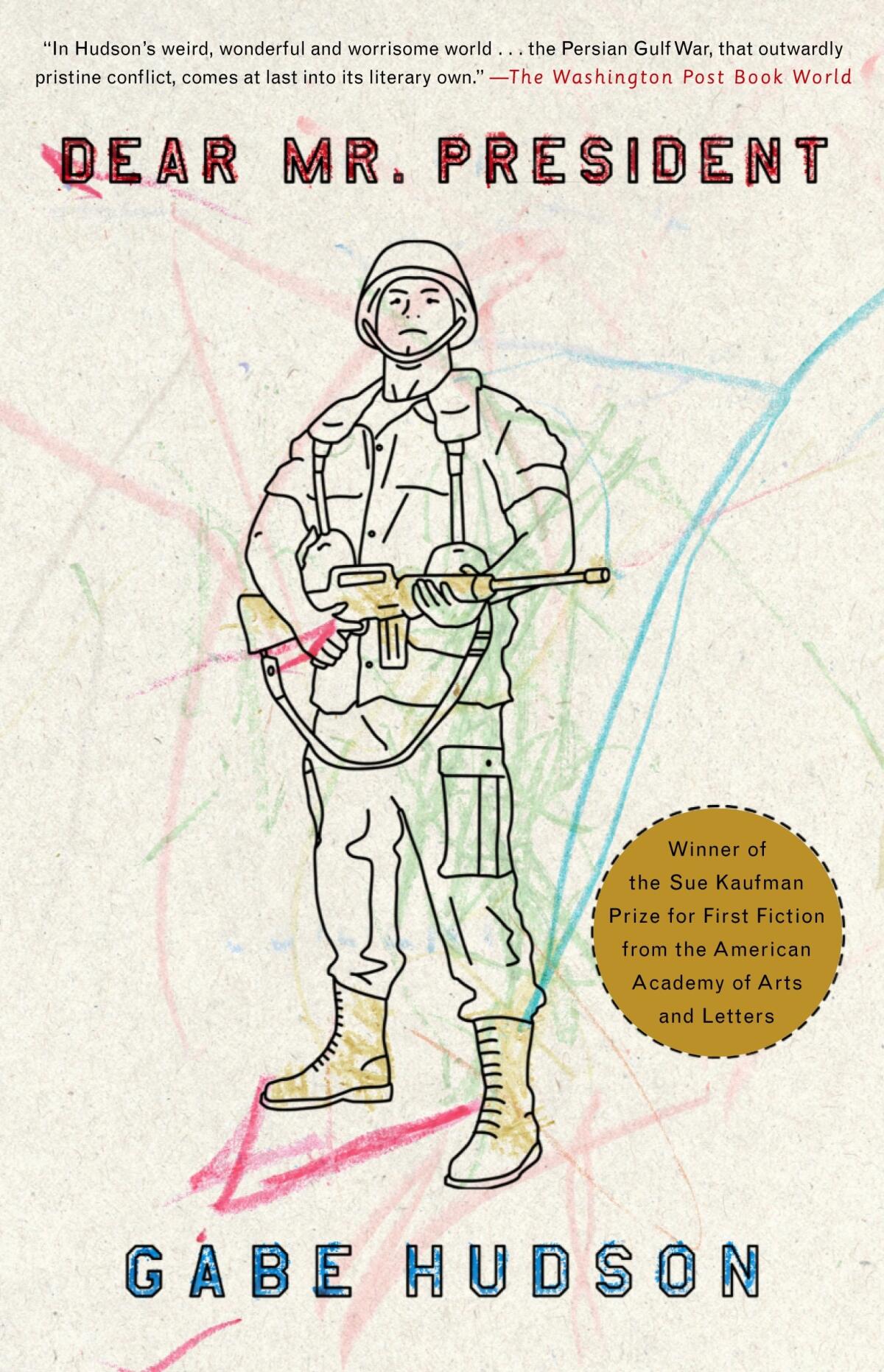
Shortly after we met, in the wake of a difficult divorce, Gabe left New York City for Cape Cod. During the pandemic he seemed to take on a new role: He became, as his friend, writer Elizabeth Crane, put it, a “sad, funny cheerleader” for literature and the writers who struggled to create it.
He started a podcast, “TwitterVerse,” later renamed “Kurt Vonnegut Radio” — a series of intimate, freeform interviews with authors including Rebecca Makkai, Diksha Basu and Dave Eggers. And he had a robust Twitter presence in which comic fatalism met open-hearted boosterism. “Sincerely honored to share the collapse of civilization w you,” read one tweet. And, last New Year’s Eve: “If yr goal was write novel this year still time but u must start now.”
The writer I had met as a physical neighbor became a virtual neighbor to so many more, touching every corner of the literary world from South Korea to Southern California.
Early in the pandemic, “He just DM’d and said, ‘You and I should be friends,’” remembers Tod Goldberg, the mystery author and head of the UCR Palm Desert Low-Residency MFA program. Gabe asked for Goldberg’s number because “I like to text.” At first he was interested in advice on his fledgling podcast, but his relationships, unlike many in book-world, were never purely transactional.
Sometimes Gabe would text: “I haven’t seen you online, are you feeling alright?” These usually came when Goldberg was down the rabbit hole of his next book. “He was always checking in,” recalled Goldberg, who was on Gabe’s podcast last year. “It’s so rare to be vulnerable like that, with people you just met. But he really engendered that openness because he was so open. He talked about the pain and suffering and trauma a lot. … I know a dozen writers he was like that for.” In a podcast episode mourning Sinead O’Connor, Gabe revealed his own childhood abuse.
For Samantha Dunn, a writer and senior editor at the OC Register, the correspondence began with a DM she sent him in thanks for a tweet, which “kicked off a conversation that lasted years.”
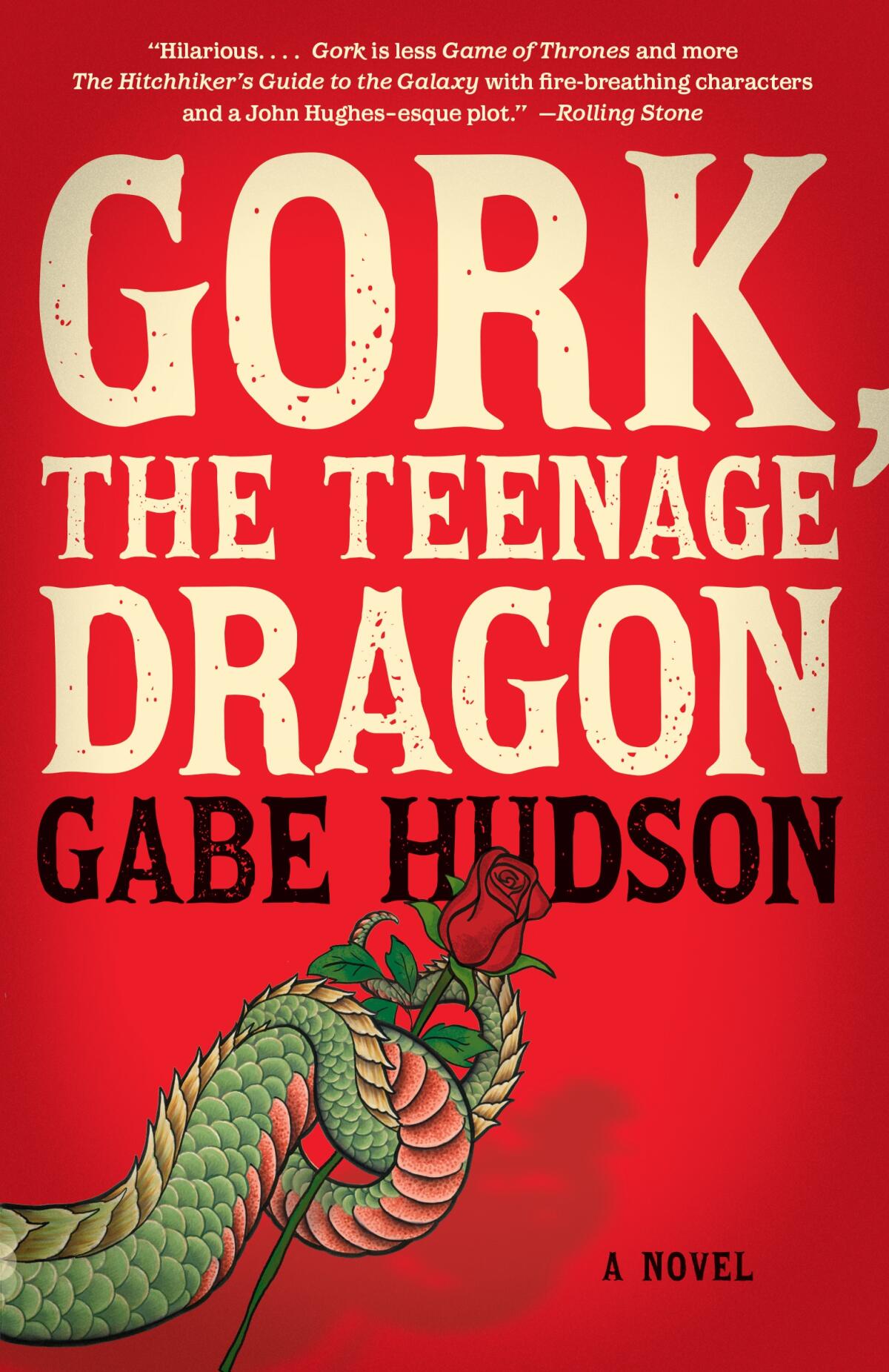
They never met, but they shared confidences: “We skipped all the small talk — I couldn’t tell you what he liked to eat or what his living arrangements were like. We always spoke about the ideas and ideals we held closest.” They commiserated over an all-too-frequent experience in publishing: the hot debut followed by crushing expectations and writer’s block. In 2021, Gabe told Dunn he was back at work on that shelved novel.
He also spoke of his book-in-progress with Crane, whom he’d first met — IRL — after a reading in Chicago two decades earlier. They’d corresponded sporadically, but “when we connected it was never superficial.” After Crane, who teaches in Goldberg’s MFA program, wrote a book about her divorce, he shared his own divorce story — and talked about his book.
The novel-in-progress would comprise three stories — a soldier who went AWOL during the Gulf War; another who fled during the Iraq War; and a veteran involved in the Jan. 6 insurrection. “I feel,” he wrote Crane, “like the world needs a big ambitious war novel to explain how we got to where we are.”
Gabe never shared his new writing with Golomb, his agent, and he didn’t speak of it after 2021. But he continued to teach at Columbia — one course was called “Storytelling Against Fascism: Weird Fiction as a Political Tool” — and he stepped up his podcast interviews, which he intercut with monologues in a register somewhere between Marc Maron and a 1980s late-night talk-radio host. And he tweeted and texted, sending out his dark affirmations, until shortly before Thanksgiving.
For more remembrances, check out this essay from Lincoln Michel, his last podcast guest; Christian Bauman’s appreciation at Identity Theory; and some testimonials at McSweeney’s.
Next Book Club
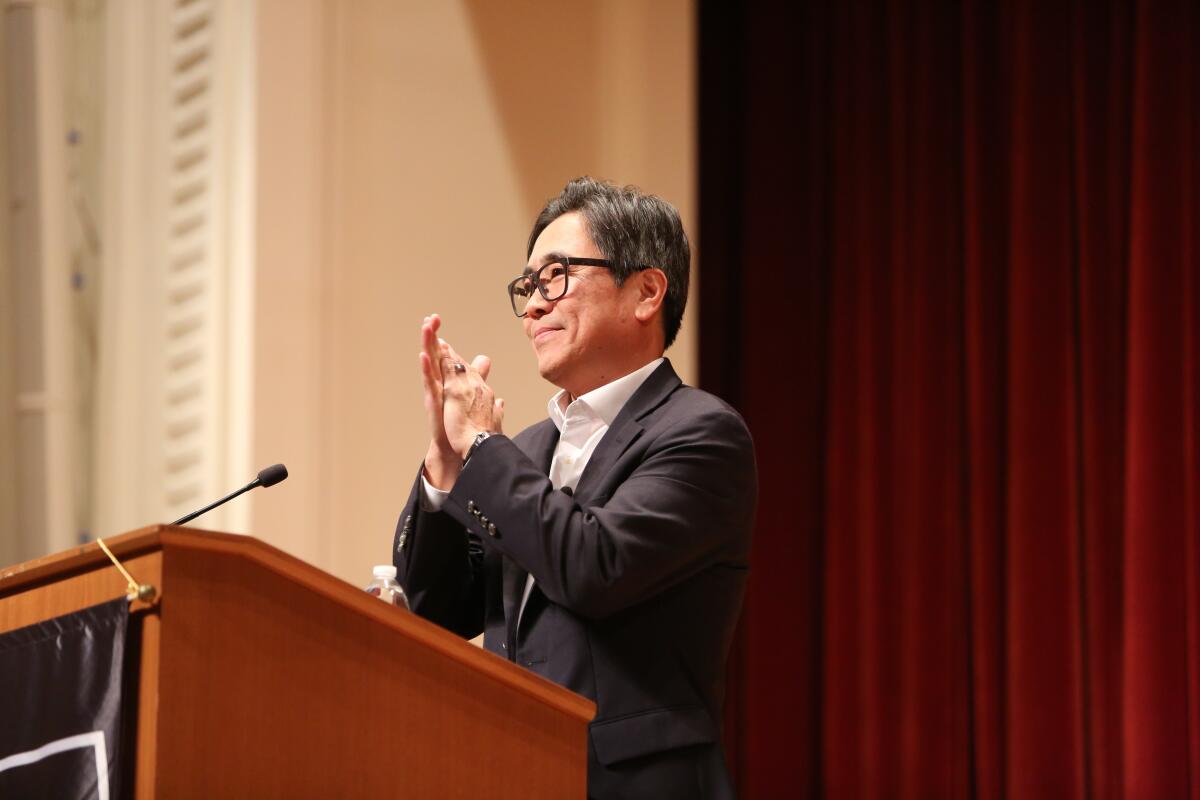
So what exactly does a California Poet Laureate do? Lee Herrick clues in Times contributor Jim Ruland for a profile that marks the former Fresno Poet Laureate’s first year as chief bard of the state. In short, there’s a lot of travel — to schools, prisons, community centers and pretty much any place that invites him: “I have a hard time saying no,” he explains. There’s also some time for writing and a few inspiring side trips. “It’s all poetry,” Herrick says of his travels. “It’s all necessary.”
Herrick will join the Times Book Club, in conversation with Times editor Steve Padilla, on Tuesday, Dec. 12, at 6 p.m. Pacific for a free virtual event. Sign up on Eventbrite for links to the livestream, which will be on YouTube, Facebook and X (formerly Twitter).
The Week in Books
Passings. Two other authors with very different legacies have died since our last dispatch. British novelist A.S. Byatt, widely celebrated for books that weave together the emotional and cerebral, especially “Possession,” which became a movie starring Gwyneth Paltrow, died on Nov. 17. She was 87. And Henry Kissinger, who parlayed his writings on history and diplomacy into a political career that reshaped the global order at the cost of many thousands of lives, died Wednesday at the ripe old age of 100. He is survived by former president and human rights champion Jimmy Carter.
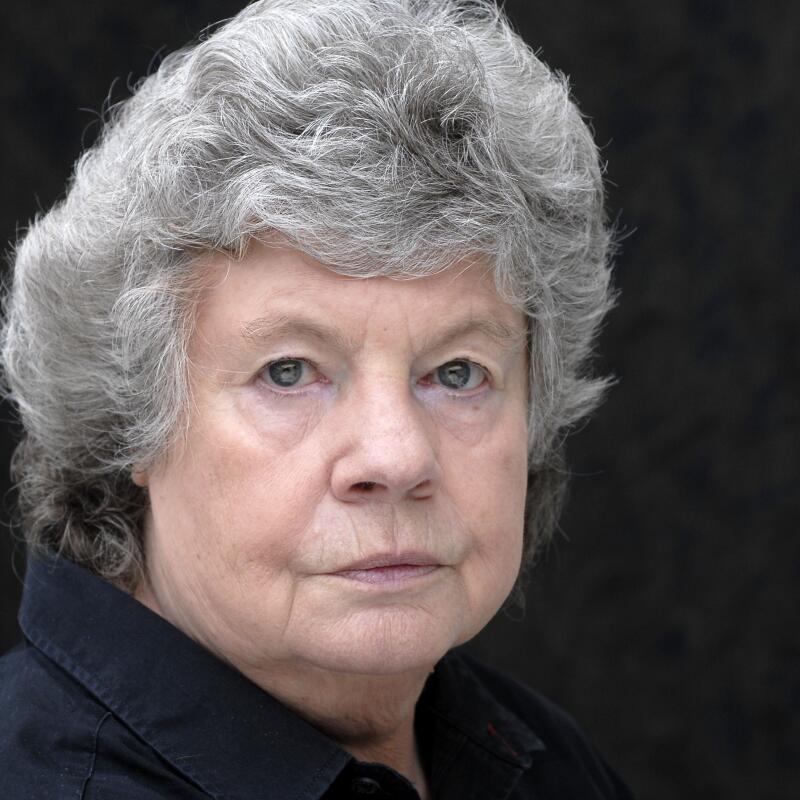

A.S. Byatt and Henry Kissinger — two very different writers who died in November. (Ulf Andersen / Gamma-Rapho via Getty Images; Sergey Ponomarev / Associated Press)
Understanding the conflict. Many journalists are doing great work seeking out books and experts to help make some sense of the Israel-Hamas war. Isaac Chotiner’s Q&As in the New Yorker are indispensable (as he always is). We’ve also been trying to do our part. Last week, I polled about a dozen authors to whittle down a list of 14 essential titles across a wide range of historical and political perspectives that might serve as a starting point. And this week Times contributor Stuart Miller posted two conversations, running in parallel, with Israeli historians — Benny Morris and Avi Shlaim — who offer starkly different opinions on who is responsible for the ongoing violence.
Who would help you escape? For a new segment we’re calling “Dying to Know,” Times contributor Paula Woods rounded up late-fall thrillers last week along with an interview lightning round with the authors, ending on the question: What authors or characters would you want with you in an escape room? My favorite reply came from Alexis Soloski, after picking Philip Marlowe: “What can I say? I love a man who gets hit on the head a lot.” Soloski will meet up with Woods at Book Soup on Dec. 11 to discuss her debut thriller, “Here in the Dark.”
Writing Irish. It’s hard to say Irish authors are having a moment (when are they not?) but they’ve certainly had a good fall. Last Sunday Paul Lynch won the Booker Prize for his novel “Prophet Song,” about a woman fighting for her family in a totalitarian future Ireland. Here at the Times, contributor David Amsden wrote about Claire Keegan’s astonishing success at turning short fiction into acclaimed stand-alone bestsellers. And Paul Murray’s “The Bee Sting” landed on the New York Times’ list of 10 best 2023 books. (Our own list is out next week, part of The Times’ entertainment year-end package.)
Speaking of lists, here are contributing critic Bethanne Patrick’s 10 most anticipated books of December.
More Times interviews to watch out for: Chris Vognar chats with “The Path to Paradise” author Sam Wasson on Francis Ford Coppola’s failed movie-making utopia; Patrick breaks down Kate Christensen’s delicious plots and her new novel, “Welcome Home, Stranger”; and Jessica Ferri interrogates Lauren Elkin about “Art Monsters,” her unruly book on feminist artists, and her feelings on “cancel culture” (mixed!).
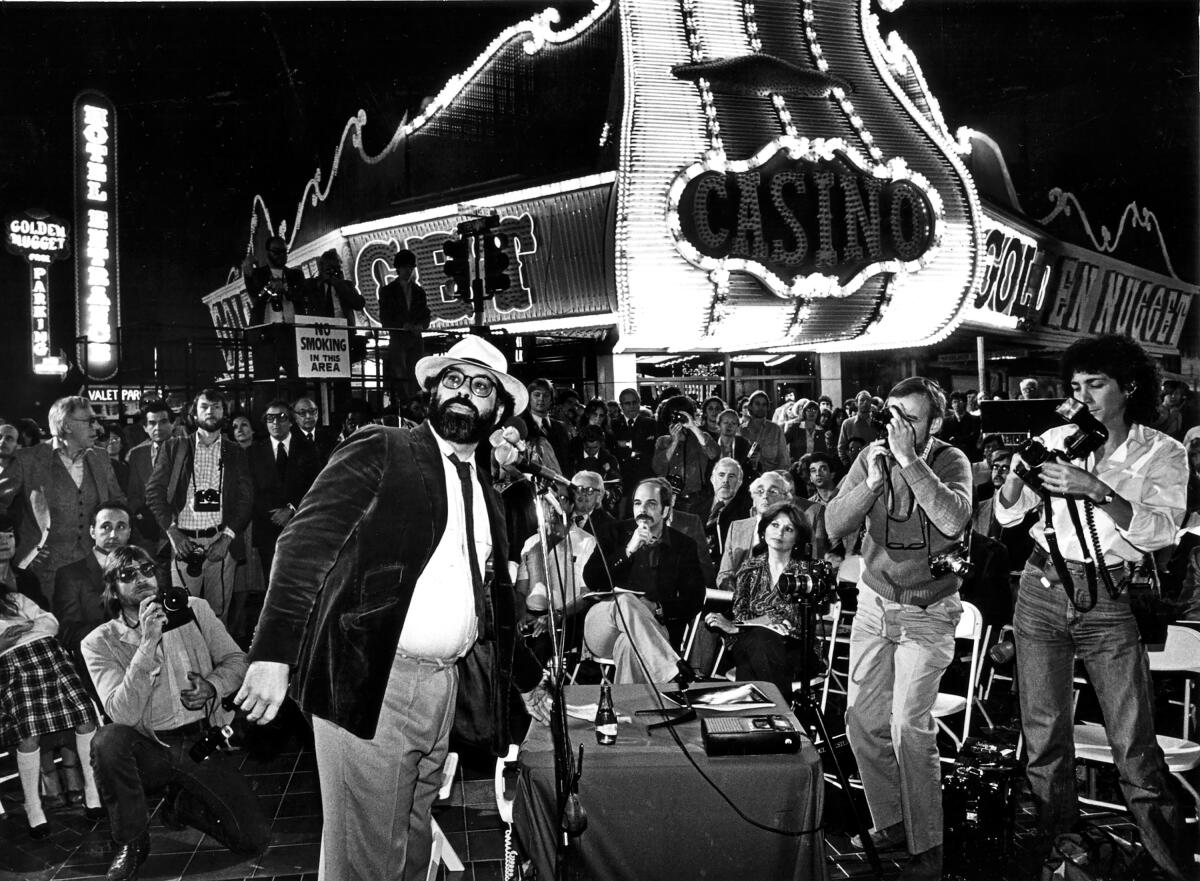
What was behind Piers Morgan’s explosive decision to name the two royals who, per Meghan Markle’s Oprah interview, speculated on the color of her unborn child’s skin? An alleged printing error in the Dutch-language edition of Omid Scobie’s new book, “Endgame,” which the publisher hastily pulled off shelves.
Werner Herzog wins memoir season. If you aren’t planning to read the eccentric, often brilliant Bavarian filmmaker’s wild autobiography “Every Man For Himself and God Against All,” which veers from philosophy to near-death experiences to scenes that feel like outtakes from a highbrow episode of “Jackass,” at least read Mark O’Connell’s whirlwind of a review in the New York Review of Books.
Bookstore Faves
Every couple of weeks, we ask an L.A. bookseller what they’re selling and what they’re loving. This time: John Evans, co-owner of DIESEL: A Bookstore in Brentwood.
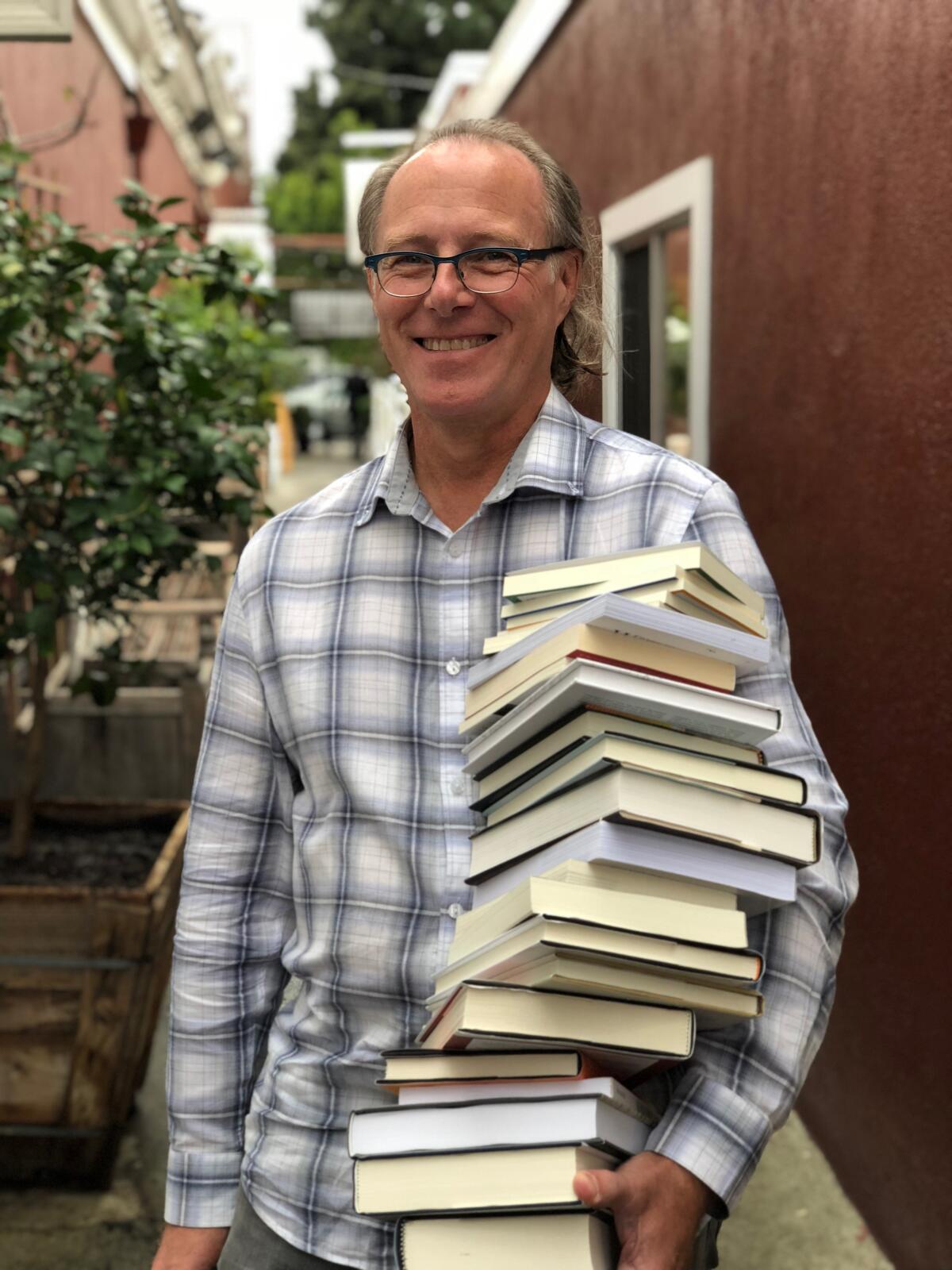
What’s flying off your shelves?
We just put our top 40 books of the year on display and No. 1 is “The Creative Act” by Rick Rubin. Also the new Barbra Streisand autobiography, “My Name Is Barbra,” the new Michael Connelly, “Resurrection Walk,” and the usual suspects. The new translation of “The Iliad” by Emily Wilson is very popular and I think is in its third printing.
What are your customers asking for?
The National Book Award winners and the Booker Prize winner. People are coming in looking for books on the history of the Middle East, Israel, Palestine — the least talked-about subject at Thanksgiving but top of mind for so many here and throughout the world. And, of course, Hanukkah and Christmas are coming, so gift giving is in full swing. For booksellers, this is the most engaging and fun time of the year!
What are you recommending and why?
We have a display behind the counter of the books we would like to be given for the holidays: The complete Shakespeare; a Richard Diebenkorn monograph; “Marr’s Guitars”; beautiful natural history books; “If I Was a Horse” and all of Sophie Blackall‘s books for kids; “The Collected Poems of Anselm Hollo.”
What are you looking forward to that isn’t out yet?
So many books coming out that it is easy to miss the great ones. In January, great fiction by Anne Michaels and Hisham Matar and poet Kaveh Akbar‘s stunning debut novel, “Martyr!,” will be out — and are not to be missed. In February, “Wandering Stars,” the brilliant prequel to Tommy Orange‘s “There, There” and far, far away in April Amor Towles promises a great book of short stories: “Table for Two.” In nonfiction, Ruha Benjamin‘s “Imagination: A Manifesto” — think of it as a “Braiding Sweetgrass” for human society.
Sign up for our Book Club newsletter
Get the latest news, events and more from the Los Angeles Times Book Club, and help us get L.A. reading and talking.
You may occasionally receive promotional content from the Los Angeles Times.




